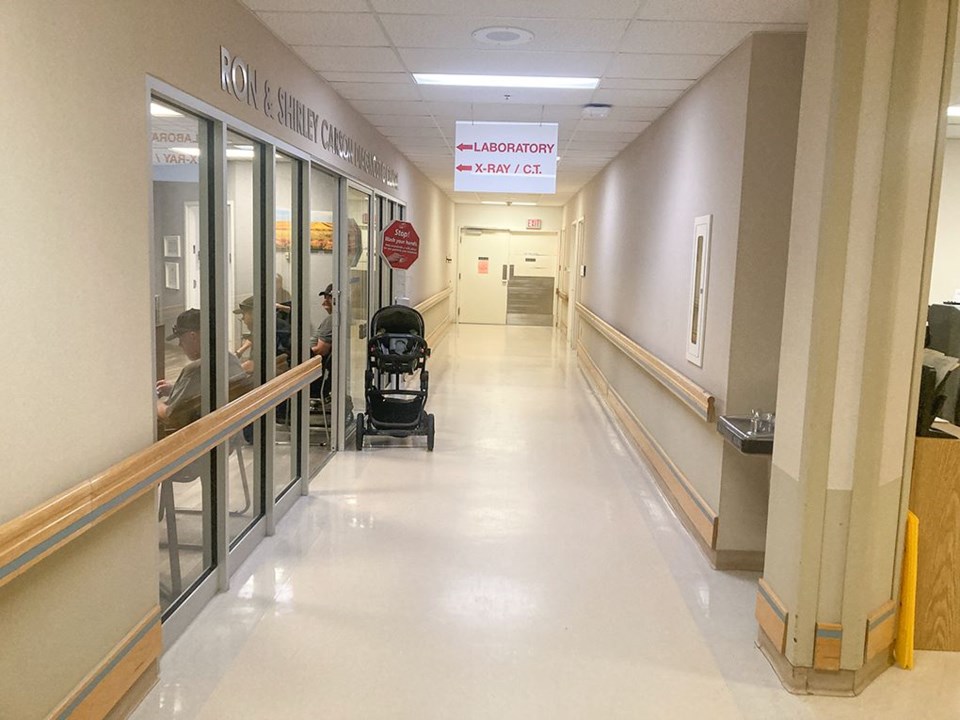ESTEVAN - Emmanuel Health is countering claims from the Buffalo Party of Saskatchewan regarding the costs and location for the new MRI scanner in Estevan.
The party presented how money could be saved on the project during a presentation at the Estevan Church of God in late May. Their numbers indicate they could complete the project for anywhere from $789,000 to $1,074,000.
The low figure would include the expense of the most affordable machine, plus staff training costs and renovations. The higher figure would be for a more expensive unit, plus staff training, a building purchase and renovations. The party suggested purchasing a used MRI unit or a modular one during the meeting.
The projected cost, according to figure released by Emmanuel Health, is $6.3 million. The St. Joseph's Hospital Foundation has committed to raise $6.5 million.
Emmanuel Health president and CEO Corey Miller, who worked extensively in MRI procurement during his time with the Saskatchewan Health Authority, said he wants the Buffalo Party's supporters and the public to be aware of the cost associated with projects like this.
Miller said an MRI that is, two to five years old could be purchased for less, but it also means the equipment would be outdated earlier, and it would have to be upgraded sooner.
"From our experience that our team has in running MRI services across the province, we would certainly recommend to the people of Estevan and those helping us to raise money and funding that we implement a new piece of equipment with the latest and greatest technologies, which will allow for that equipment to last as long as possible in the environment that we're putting together to attract the most qualified people to run that equipment," said Miller.
Used MRIs are more common in the U.S. than in Canada, but the equipment could cross the border.
Miller recalls that when in a previous role, he replaced an MRI at the Royal University Hospital in Saskatoon and the old unit was sold to a veterinary clinic at the university. It ran for four years, but was then replaced by a new scanner.
The typical lifespan for an MRI unit is eight to 12 years.
"When you purchase a new MRI, it comes with a service contract that has preventative maintenance, and it often even has an evergreening component to that service contract," Miller said.
Every three or four years, the vendor comes in and during a three-day period, the computer technology and software in the unit will be updated, so the equipment acquires the images more quickly.
"We typically do two upgrades like that in the lifespan of the MRI to keep it updated longer, so that the magnet lasts more than eight years. It might last 12 years," Miller said.
Replacing the scanner would be a multi-week process.
As for the location, Miller said there are private off-site clinics elsewhere in the province. The Buffalo Party suggested purchasing a vacant building in the 1300-block of Fourth Street to house the scanner, renting a vacant office across from the hospital south of Nicholson Road, or relocating the addictions treatment and recovery centre in the hospital, and using that space for the MRI.
Miller said Emmanuel Health did not investigate an off-site location; they focused on it being hospital-based. The results for the MRI will be read by the same professionals as the CT scanner, so there will be efficiencies in having them in the same area.
They also need access to Picture Archived Communications System (PACS), which includes x-rays, ultrasounds, CT scans and MRIs on a central server. There is a short-term server on site, a data centre in Regina, and the images are on a large server with back-ups. St. Joe's has access to PACS.
"If we were to build … off-site, it's still possible, but it's a bigger project to work through with our partners at the Saskatchewan Health Authority and eHealth Saskatchewan," said Miller.
He pointed out that having a new MRI on the hospital grounds will help with recruiting staff and physicians.
"We can say look, we have a full emergency [room], we have a 30-bed hospital, we have a CT scanner. Now we have an MRI coming. It just becomes another tool that we can show physicians we are a full-service, acute-care site so that we could have a better opportunity to recruit people."
The hospital did look at a modular option – an MRI in a semi-trailer parked beside the hospital – but there is a cost associated to get the site ready for a portable MRI in a trailer.
"We did not feel like that it is a viable, long-term solution for St. Joseph's Hospital or Estevan. That's a temporary measure."
Miller said Emmanuel Health wants to ensure the infrastructure in Estevan fits into the provincial system so the radiologists and technologists working and reading the images in Estevan are giving high-quality images that align with the province.
And he pointed out the project has the endorsement of the people of Estevan, the Emmanuel Health Board, the St. Joseph's Hospital Foundation and the provincial cabinet.
Miller said Emmanuel Health would welcome the opportunity to have a meeting with the Buffalo Party so they could inform them about the project and give them confidence this is the right team to deliver the machine.






